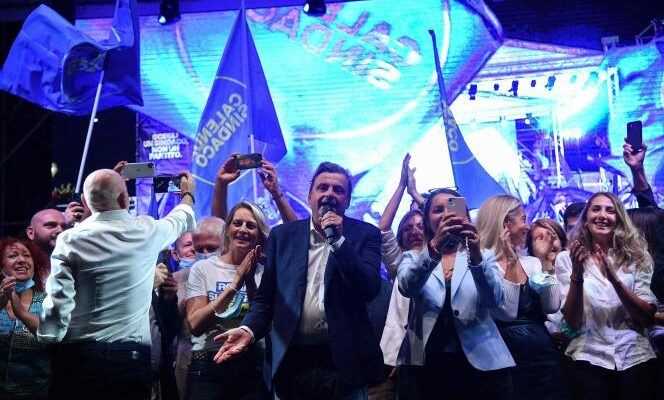It is a sort of immutable ballet, which belongs to the ordinary of European democracies. At the end of local elections, the victors assure that their triumph has a national value, while the losers strive to impose the opposite reading.
Yet this time, nothing like it. From the left to the extreme right of the Italian political spectrum comes the same denial, unanimous: the partial municipal elections of October 3 and 4 (with a possible second round on October 17 and 18) cannot be read other than as simple local consultations, and their results should above all not be extrapolated. They will have no influence on the political choices of the government, the President of the Council, Mario Draghi, seeking to stay away from the quarrels of the parties, and moreover giving the impression of governing by consulting them as little as possible.
Despite everything, the stake of this vote is far from being negligible. Only 1,300 of the 8,000 Italian municipalities are concerned, but the ballot still concerns 20 provincial capitals, as well as the four most populous cities of the country: Rome, Milan, Naples and Turin. Of course, by virtue of their diversity, these metropolises obey very different dynamics from one another. Nevertheless, certain common features will still allow the first lessons to be drawn from the state of the balance of power, after eight months of a Draghi government bringing together almost all of the country’s political forces.
Figures from civil society
The first of them is the return, manifest since the end of the alliance between the League (far right) and the 5-star Movement (M5S, anti-system), in August 2019, to a form of bipolarism. On the right, even if the two dominant formations do not have the same position in relation to the government (the League of Matteo Salvini is part of the majority while the post-fascists of Fratelli d’Italia, led by Giorgia Meloni, preferred stay out), alliances were made without too much difficulty, especially in the big cities.
The most difficult, basically, will have been to find candidates who are both moderate and able to locally embody this alliance. Figures from civil society were thus designated, presented to voters as far removed from party life, even if they are actively supported by all components of the right. This is particularly the case in Rome (Enrico Michetti), Milan (Enrico Bernardo) and Turin (Paolo Damilano).
You have 59.46% of this article to read. The rest is for subscribers only.
